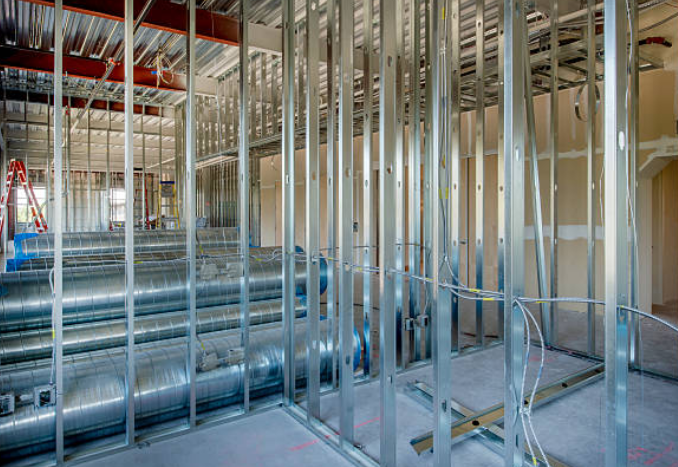
Posted on Wednesday, October 9, 2024
The construction industry continually seeks methods to improve efficiency, reduce costs, and enhance the quality of building materials. One technology that has gained significant traction in this pursuit is roll forming. Specifically, roll forming machines have proven to be invaluable in the dry lining process, which involves the installation of drywall and other partitioning materials. Here are the key advantages of using roll forming machines in dry lining:
Precision is crucial in construction, especially in dry lining applications where alignment and fit are essential. Roll forming machines produce consistent, high-quality profiles that ensure each component meets exact specifications. This precision is critical in dry lining, as it allows for seamless integration of materials, reducing the chances of gaps or misalignments that can compromise the structural integrity of a project.
The ability to manufacture components with exact tolerances minimizes waste and rework. When profiles are produced accurately, contractors can install them without the need for modifications, saving both time and resources. This precision not only enhances the quality of the finished product but also contributes to a smoother construction process overall.
In today’s fast-paced construction environment, speed is of the essence. Roll forming machines are designed for high-speed production, which significantly accelerates the manufacturing process. This rapid output enables contractors to meet tight project deadlines, ensuring that construction schedules stay on track.
The efficiency of roll forming also translates to on-site productivity. With materials readily available and produced at high speeds, crews can focus on installation rather than waiting for components to be manufactured. This speed advantage helps contractors enhance their workflow, allowing them to take on more projects or finish existing ones ahead of schedule.
Cost control is a top priority in construction, and roll forming technology offers a highly economical solution. Automated production processes in roll forming reduce labor costs, as fewer workers are needed to operate machinery compared to traditional manufacturing methods. Additionally, the consistent quality of roll-formed products minimizes material wastage, further lowering overall project costs.
By choosing roll forming for dry lining applications, contractors can provide competitive pricing without sacrificing quality. This affordability makes roll-formed metal framing an attractive option for both residential and commercial projects, allowing contractors to offer clients high-quality solutions at a lower price point.
Roll forming machines bring significant advantages to the dry lining process, including precision, speed, and cost-effectiveness. By producing high-quality profiles with exact tolerances, these machines enhance the overall quality of construction projects. Their ability to manufacture components rapidly allows contractors to meet tight deadlines, improving on-site efficiency. Additionally, the cost savings associated with roll forming technology make it a smart choice for contractors looking to maximize profitability without compromising on quality.
As the construction industry continues to evolve, embracing advanced technologies like roll forming will be crucial for staying competitive. By leveraging the benefits of roll forming machines, contractors can enhance their operations and deliver exceptional results in dry lining projects.

Used Purlin Roll Forming Machines for Sale Worldwide
Posted on Sunday, January 25, 2026
Pre-Owned Roll Forming Machines for Purlin & Structural Steel Profiles

Used Roof Panel Roll Forming Machines for Sale Worldwide
Posted on Sunday, January 25, 2026
Pre-Owned Roll Forming Machines for Roofing Panel Production

Used Roll Forming Machines for Sale Worldwide
Posted on Tuesday, January 20, 2026
Pre-Owned Roll Forming Machines with Inspection, Verification & Global Support

Steel Coil Supply for Roll Forming Machines Worldwide
Posted on Tuesday, January 20, 2026
Reliable Steel Coil Supply for Roll Forming, Fabrication & Manufacturing Applications
Copyright 2026 © Machine Matcher.